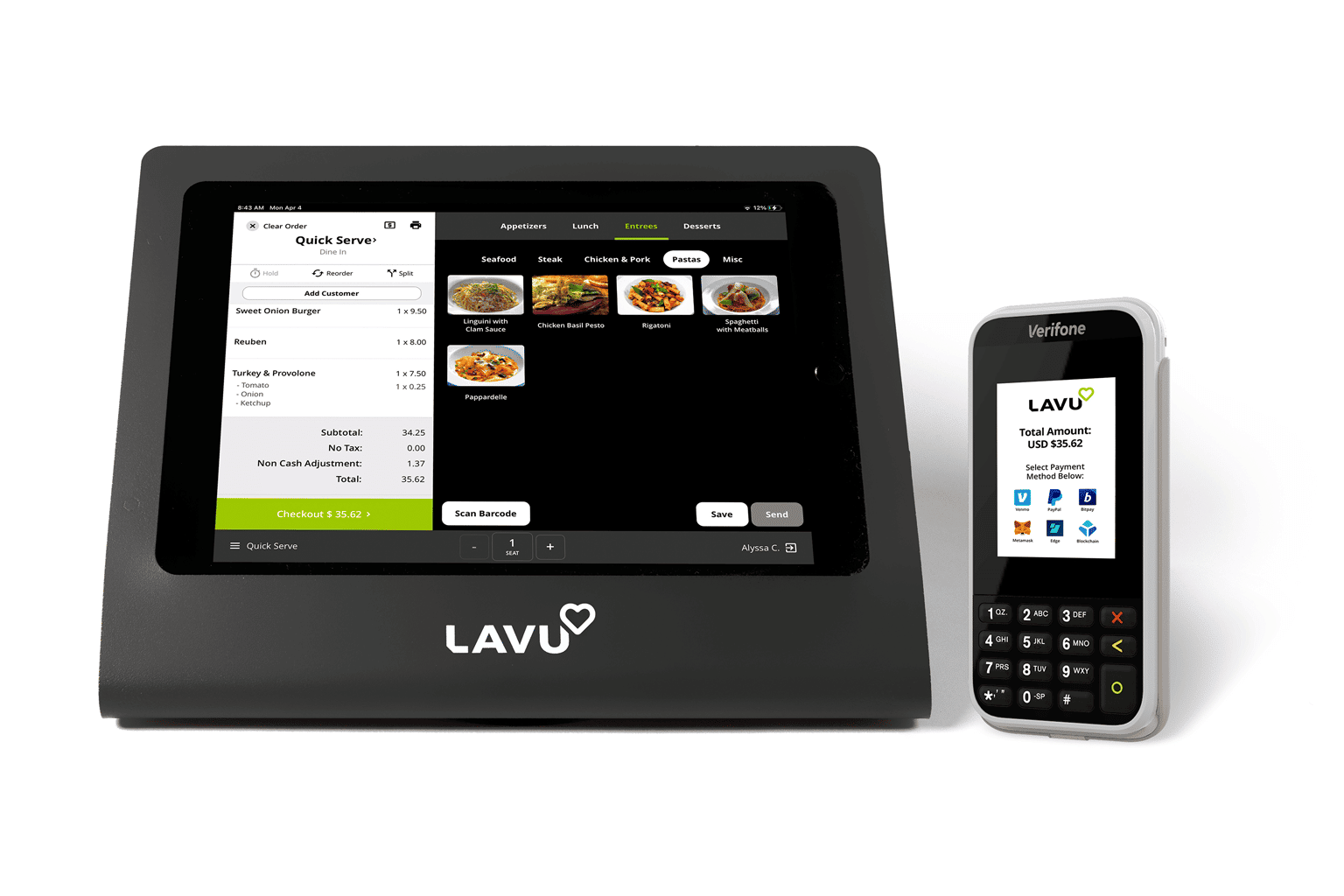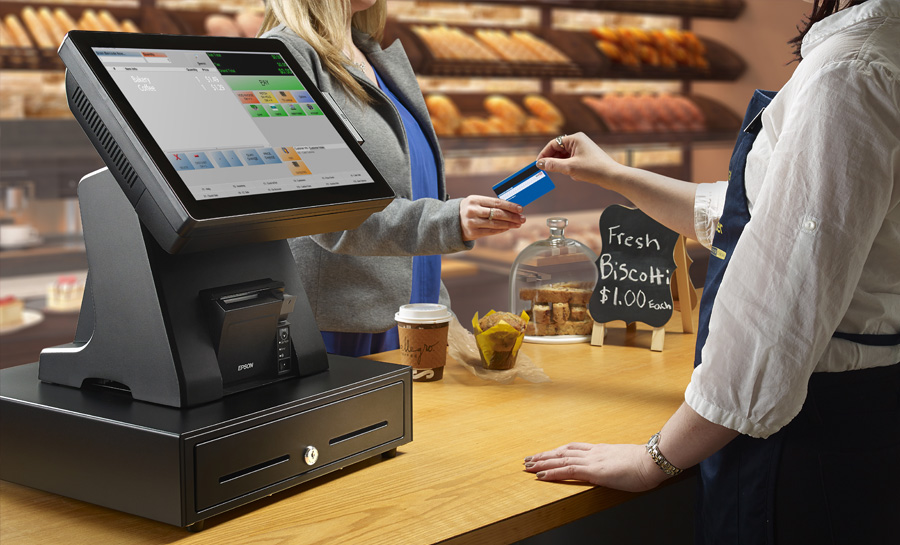Data protection best practices in Restaurant POS Software: What restaurant owners need to follow
Understanding the Significance of POS Software in Modern Retail Operations
In today's retail landscape, the function of POS software program has ended up being significantly significant. These systems have actually transformed from fundamental sales register to complex tools that improve various facets of procedures. They not only streamline transactions however likewise offer insights that can form business strategies. Recognizing exactly how these systems effect customer experience and supply administration is necessary for any type of merchant seeking to remain competitive. The effects of these advancements warrant further exploration.
The Development of POS Software Application: From Transaction Handling to Comprehensive Solutions
As retail settings developed, so too did the performance of Factor of Sale (POS) software application, which changed from standard purchase processing systems to advanced, complete remedies. POS systems primarily handled sales transactions, handling money registers and printing invoices. With innovations in technology, these systems started integrating inventory administration, consumer relationship monitoring, and sales analytics. Merchants recognized the requirement for seamless procedures and real-time data, motivating the development of cloud-based POS services that permitted remote access and boosted scalability.Additionally, the rise of mobile commerce required POS systems to adapt, enabling deals via mobile phones and tablets. This transformation not only structured procedures yet additionally improved reporting capacities, permitting sellers to make informed decisions based on thorough data insights. As a result, modern-day POS software has ended up being integral to retail method, functioning as a multifunctional device that sustains numerous operational elements beyond plain deal handling.
Enhancing Consumer Experience Via Advanced POS Features
While lots of sellers concentrate on functional performance, progressed POS features increasingly prioritize improving the customer experience. Modern POS systems currently provide performances such as mobile payment choices, individualized promotions, and customer loyalty programs, which foster an even more engaging buying environment. By simplifying the checkout procedure, these systems minimize wait times, allowing clients to total purchases promptly and efficiently.Additionally, integrated client partnership administration (CRM) functions allow sellers to track purchasing preferences and behaviors, promoting tailored advertising and marketing efforts. This customization not just develops customer loyalty yet likewise improves overall satisfaction.Moreover, advanced analytics provided by POS systems can assist stores understand customer trends and preferences, allowing them to make educated choices concerning product offerings and shop designs. Ultimately, the concentrate on consumer experience through innovative POS features not only meets contemporary customer assumptions yet likewise drives repeat organization and raises earnings for stores.
Simplifying Supply Management With Integrated POS Systems
Integrated POS systems play an essential role in improving inventory management by automating processes that generally needed substantial hand-operated initiative (Restaurant POS Software). These systems allow merchants to track supply degrees in genuine time, getting rid of discrepancies that frequently arise from manual supply matters. With functions such as barcode scanning and automatic stock replenishment informs, organizations can preserve optimal inventory levels without overstocking or stockouts.Furthermore, integrated POS systems facilitate exact projecting by evaluating historical sales information, allowing stores to make enlightened buying decisions. This anticipating capacity aids organizations adapt to altering consumer needs and seasonal trends extra effectively.Additionally, the centralization of stock data across multiple sales networks enhances visibility, allowing merchants to handle their supply a lot more efficiently. Inevitably, the combination of POS systems into stock management simplifies procedures, minimizes human mistake, and contributes to enhanced success
Real-Time Sales Tracking and Coverage for Informed Decision-Making
Accurate inventory management lays the foundation for effective sales tracking and coverage. Real-time sales tracking makes it possible for sellers to check sales performance as it takes place, providing immediate understandings right into customer getting patterns and patterns. This capacity allows services to react swiftly to variations in demand, enhancing supply degrees and decreasing overstock or stockouts.Moreover, incorporated POS systems help with the generation of comprehensive records, highlighting crucial metrics such as sales by group, time periods, and private items. Such reporting abilities encourage retailers to make data-driven decisions, determining effective approaches and areas needing improvement.

The Role of POS Software in Client Connection Monitoring
POS software application plays a vital function in improving consumer partnership monitoring by making it possible for sellers to execute tailored advertising and marketing strategies. By assessing client data, organizations can customize promotions and interactions to fulfill individual preferences. Additionally, these systems facilitate the advancement of boosted loyalty programs that encourage repeat service and reinforce client engagement.
Personalized Advertising Methods
As merchants significantly seek to enhance consumer loyalty and involvement, individualized advertising strategies have actually emerged as a vital element of reliable customer partnership monitoring. POS software application plays an important function in this process by collecting and analyzing consumer information, enabling sellers to tailor advertising initiatives to individual preferences and buying actions. By leveraging insights from acquisition histories, merchants can create targeted promos and personalized communications that reverberate with customers, cultivating a deeper link. Furthermore, the assimilation of POS software program with client partnership monitoring systems enables seamless monitoring of consumer communications, making certain that marketing website strategies stay pertinent and prompt. This data-driven strategy not only improves consumer complete satisfaction however additionally drives sales and encourages repeat business, strengthening the store's market placement.
Boosted Loyalty Programs
Sellers are increasingly identifying the significance of loyalty programs in fostering lasting customer partnerships and boosting overall interaction. POS software program plays an essential duty in the development and management of these programs, permitting sellers to track customer preferences, purchases, and behaviors effectively. By leveraging information analytics, companies can produce tailored incentives and incentives that resonate with individual clients, thus raising participation in loyalty programs. Additionally, POS systems enable smooth combination with electronic platforms and mobile applications, facilitating simple access to incentives and promotions. This not only boosts customer contentment yet additionally drives repeat organization. Inevitably, POS software application encourages stores to cultivate much deeper links with their clients, transforming occasional shoppers right into loyal clients via targeted and significant interaction approaches.
Incorporating POS Equipments With E-Commerce Operating Systems for Omnichannel Success
To accomplish real omnichannel success, smooth integration in between point-of-sale (POS) systems and e-commerce platforms is essential. This assimilation allows merchants to unify their supply management, making certain that item schedule is accurately mirrored throughout both online and physical stores. Clients gain from a natural shopping experience, where they can conveniently switch over in between channels without encountering discrepancies.Furthermore, integrated systems promote real-time information sharing, enabling businesses to evaluate customer behavior and preferences better. This data-driven technique enables merchants to customize marketing techniques and enhance supply levels, ultimately improving customer fulfillment and driving sales.Additionally, the ability to procedure purchases throughout platforms streamlines procedures, lowering the threat of mistakes and boosting general performance. As retailers increasingly adopt omnichannel approaches, the combination of POS systems with shopping systems remains an important variable in accomplishing sustainable growth and maintaining affordable advantage in the dynamic retail landscape.

Future Patterns in POS Modern Technology and Their Influence on Retail Operations
As retail operations evolve, future fads in POS technology are set to improve the landscape considerably. The increase of cloud-based remedies, developments in mobile POS systems, and the advantages of AI assimilation are among the crucial advancements expected to boost performance and consumer experience. These developments promise to simplify processes and foster a much more vibrant retail environment.
Cloud-Based Solutions Rise
With the increasing dependence on innovation, cloud-based POS options are changing retail operations by using enhanced flexibility and scalability. These systems enable stores to accessibility real-time data from anywhere, promoting better decision-making and customer care. By leveraging cloud facilities, services can reduce upfront expenses related to equipment and software application setups while making sure seamless updates and maintenance. Furthermore, cloud-based remedies support multi-location monitoring, enabling stores to integrate stock and sales across different outlets easily. This flexibility is essential in today's hectic market, where consumer choices change rapidly. As more retailers take on these options, they can expect enhanced functional effectiveness and a more receptive method to market demands, eventually enhancing consumer satisfaction and commitment.
Mobile POS Innovations
The evolution of retail innovation remains to shape procedures, especially with the surge of mobile POS developments. These systems enable merchants to refine deals anywhere within the store, enhancing client interaction and improving check click here out procedures. Mobile POS options enhance supply management by allowing immediate accessibility to supply levels, aiding team assist consumers extra successfully. In enhancement, they promote personalized buying experiences with integrated consumer information and loyalty programs. As smart phones become increasingly advanced, retailers are adopting features such as contactless settlements and digital invoices, in addition maximizing the buying trip. The change in the direction of mobile POS not only increases functional performance however additionally lines up with the growing customer choice for ease, ensuring that stores continue to be affordable in a rapidly advancing market.
AI Combination Benefits
AI combination represents a transformative leap in POS innovation, using merchants a myriad of advantages that boost functional effectiveness and client experience. By leveraging artificial intelligence algorithms, merchants can assess purchasing patterns and maximize stock management, decreasing waste and stockouts. In addition, AI-powered analytics give individualized advertising and marketing suggestions, allowing targeted promos that raise consumer interaction and loyalty (Restaurant POS Software). In addition, chatbots and digital assistants simplify customer solution, enabling quicker resolution of inquiries and enhancing the total read more buying experience. Predictive analytics can also forecast demand fads, enabling smarter staffing and resource allowance. Eventually, the combination of AI in POS systems encourages retailers to make data-driven choices, fostering an one-upmanship in an ever-evolving retail landscape
Frequently Asked Concerns
What Are the Costs Connected With Carrying Out POS Software?
The costs connected with executing POS software can consist of software application licensing costs, hardware expenses, installment fees, training prices, and ongoing maintenance. Each aspect contributes to the general investment required for an effective execution.
Exactly How Can Little Retailers Gain From POS Equipments?

What Hardware Is Needed for a POS System?
A common POS system requires important hardware parts, consisting of a touchscreen screen, money cabinet, barcode scanner, invoice printer, and payment terminal. These aspects collaborate to assist in effective purchase handling and supply monitoring for retailers.
Can POS Software Application Be Personalized for Specific Retail Needs?
POS software can certainly be customized to fulfill particular retail needs. This adaptability allows organizations to tailor functions, interfaces, and coverage devices, enhancing functional performance and supplying a much more tailored experience for both staff and consumers.
Exactly How Safe Is Client Data in POS Equipments?
The protection of client information in POS systems varies commonly. Numerous systems carry out security, safe access controls, and regular updates, however susceptabilities can still exist, requiring continuous caution and aggressive actions from merchants to safeguard sensitive information. By improving the check out process, these systems reduce wait times, enabling consumers to full deals promptly and efficiently.Additionally, integrated consumer relationship monitoring (CRM) functions make it possible for sellers to track purchasing habits and preferences, promoting customized advertising efforts. As merchants significantly look for to enhance consumer commitment and involvement, personalized marketing strategies have actually arised as a necessary element of efficient consumer relationship monitoring. Additionally, the assimilation of POS software application with customer partnership monitoring systems allows for seamless monitoring of client communications, making certain that advertising methods stay relevant and prompt. Consumers benefit from a natural shopping experience, where they can easily change in between channels without running into discrepancies.Furthermore, incorporated systems promote real-time data sharing, enabling companies to evaluate customer behavior and choices a lot more effectively. Little retailers can profit from POS systems via improved deal performance, structured stock monitoring, and boosted client understandings.